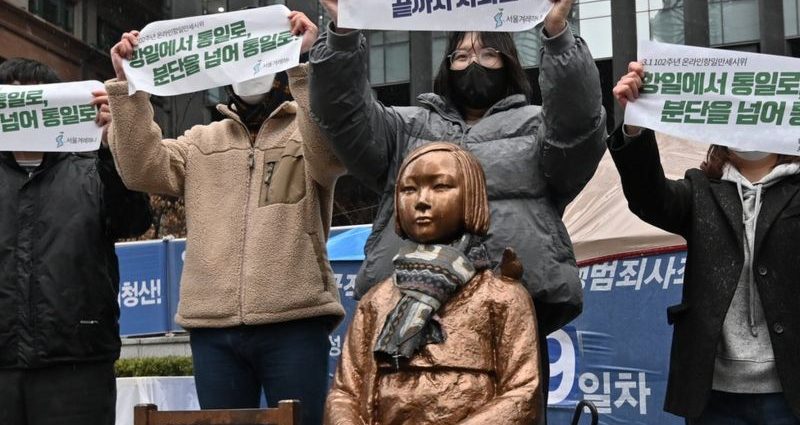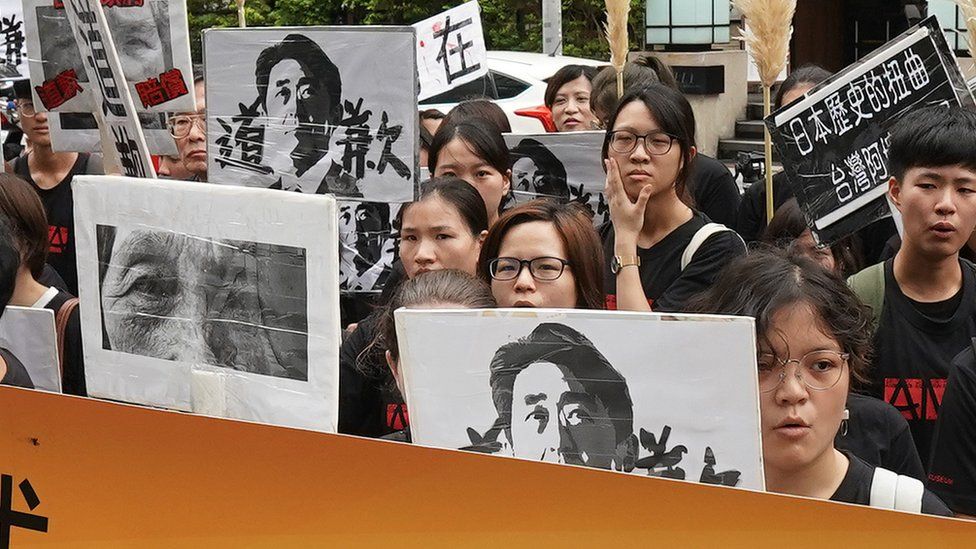
The last known Taiwanese “comfort woman” from World War Two has died aged 92, says a Taipei anti-sex trafficking group.
“Comfort women” refers to those forced to work in the Japanese army’s wartime brothels between 1932 and 1945.
Activists estimate 200,000 people from the occupied territories were forced into sexual slavery, including about 2,000 women in Taiwan.
The woman, who did not wish to be named, died on 10 May said activists.
The Taipei Women’s Rescue Foundation said her family had permitted the news of her death to be known after a private funeral.
Women forced into Imperial Japan’s WW2 sexual slavery came from its occupied territories in Korea, China, Taiwan and the Philippines among other areas.
The Taipei Women’s Rescue Foundation said located 59 of them locally after setting up a hotline in 1992.
“We will continue to keep records of the comfort women and hope the truth about the sexual violence does not disappear with their deaths,” the foundation said in a statement.
“We will continue to demand that the Japanese government apologise and compensate these women and their families,” it added.
Taiwan was colonised by Japan from 1895 to 1945. While there are numerous memorials dedicated to the Japanese contribution to the island during the colonial period, it was not until 2018 that the first memorial to “comfort women” was erected in the southern city of Tainan.
Protests ensued when a Japanese right-wing activist was filmed kicking the statue. This came two years after Taiwan opened a museum dedicated to “comfort women” in the capital Taipei.
The historical grievance has long been a sore point in Japan’s relations with its neighbours.
Thousands of “comfort women” were drawn from Korea, and the issue has long driven a political wedge between Tokyo and Seoul.
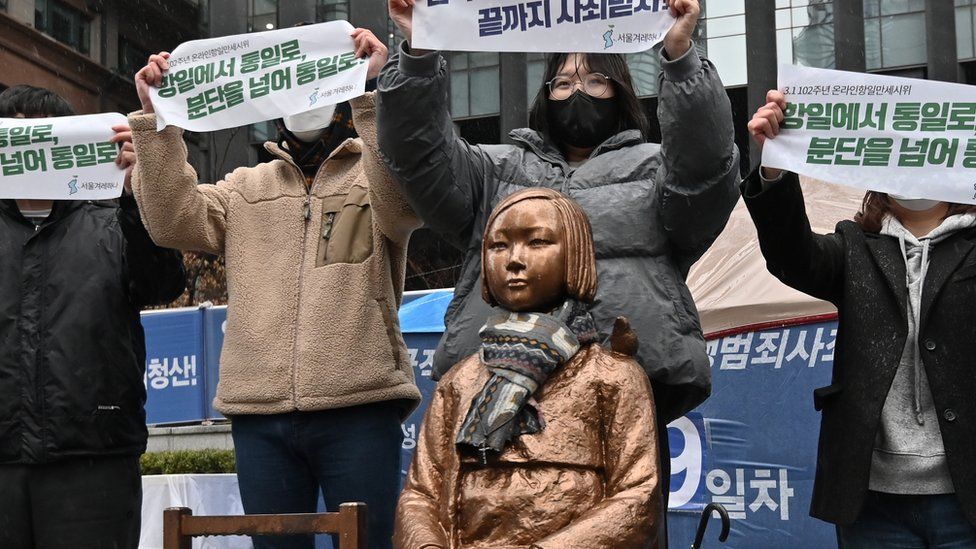
In 2015, the two governments came to an agreement in which Fumio Kishida, then Japan’s foreign minister, apologised for the “grave affront to the honour and dignity of large numbers of women”.
However a few weeks later the the Prime Minister Shinzo Abe appeared to walk back the apology. He told the Japanese parliament: “There was no document found that the comfort women were forcibly taken away”.
South Korea also accepted Japan’s compensation offer of 1b yen ($7.2m; £5.8m). However it was criticised by victims as being insufficient.
Japan has minimised the topic of comfort women in its post-WW2 narrative, says Professor Mary McCarthy of Drake University, who specialises in Japan’s domestic and foreign policies.
There is currently no consensus within Japan about the facts of the comfort women: who they were, how they were recruited, what the roles of the Japanese military and government were, and what should be done today, she said.
“They were undermined by removal of the issue from Japanese school textbooks, Japanese politicians denying the issue, and active insistence by the government and individual politicians that memorials to the comfort women around the world be removed.”
Prof McCarthy told the BBC the issue has polarised public discourse since the 1980s, becoming a “political symbol” of ideological preferences and worldviews.
Related Topics
-
-
28 December 2015
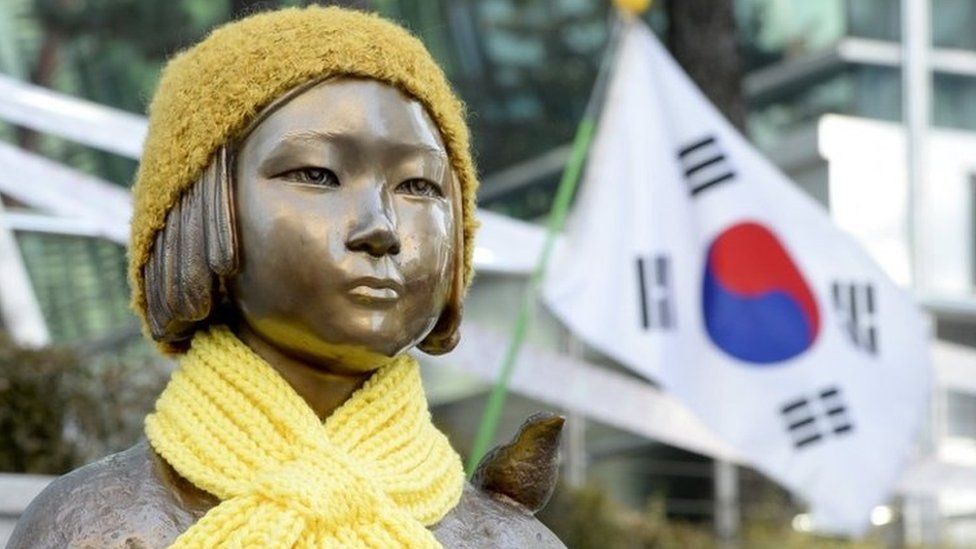
-
-
-
27 October 2017
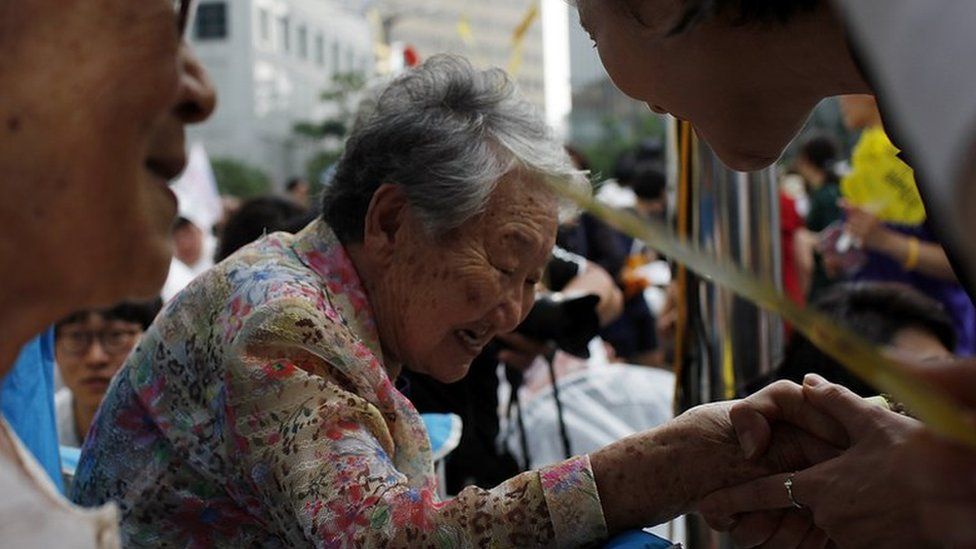
-

